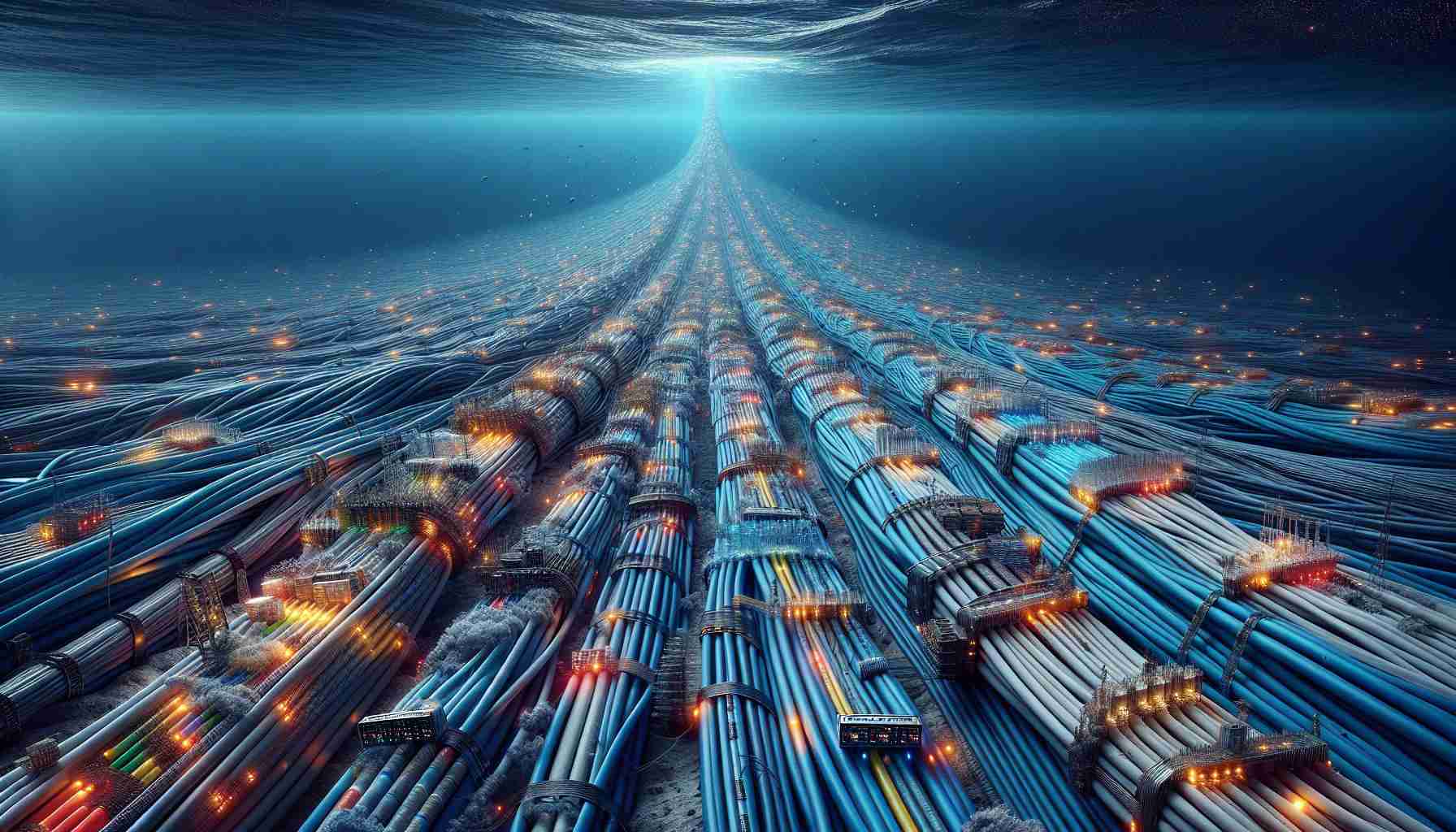Meta is embarking on a revolutionary $10 billion project to construct an expansive subsea cable network exceeding 40,000 kilometers. This ambitious initiative signifies Meta’s inaugural ownership of a dedicated data route, aiming to enhance its global internet infrastructure. The proposed cable will span from the US to India, navigating around geopolitical hotspots, thereby securing vital data communication channels for Meta’s platforms, including Facebook and Instagram.
India plays a central role in this project, potentially evolving into a hub for artificial intelligence development. With a staggering user base across Meta’s services, India represents a strategic market. The plans involve establishing advanced AI training facilities and data centers, further solidifying the country’s position as a crucial player in Meta’s operational framework.
This initiative reflects a broader trend among tech giants seeking ownership of their data transport networks. The drive for greater control over infrastructure has been amplified by recent incidents of cable damage due to global tensions. Meta’s project aims to bolster service reliability and mitigate risks associated with traditional routes.
While details are still emerging, potential benefits for Meta include improved service delivery and enhanced capabilities in AI technology. Anticipation grows as the company prepares to unveil further information in early 2025, signifying a transformative leap in both connectivity and artificial intelligence infrastructure on a global scale.
Meta’s $10 Billion Subsea Cable Network: A Game-Changer for Global Connectivity
Introduction
Meta’s ambitious $10 billion project to build a vast subsea cable network exceeding 40,000 kilometers is set to redefine the landscape of global internet infrastructure. This initiative represents Meta’s first attempt to own a dedicated data transportation route, aiming to improve the connectivity and reliability of its platforms like Facebook and Instagram.
Project Overview
The new subsea cable will stretch from the United States to India, carefully navigating geopolitical hotspots to ensure secure data communication. This strategic move is not just a response to increasing global internet demand but also an antidote to the vulnerabilities exposed by recent incidents of cable damage linked to geopolitical tensions.
India’s Strategic Role
India is poised to become a central hub for this initiative. With a massive user base accessing Meta’s services, the country presents a lucrative market. Meta plans to establish cutting-edge AI training facilities and data centers in India, enhancing the national landscape for artificial intelligence and solidifying its role as a leader in technological innovation.
Pros and Cons of the Project
Pros:
1. Enhanced Service Reliability: Ownership of the cable infrastructure could lead to improved service delivery and reduced downtime.
2. AI Development Boost: Establishing data centers and training facilities can accelerate advancements in artificial intelligence in India.
3. Reduced Geopolitical Risks: By circumventing conflict-prone areas, the cable will secure more reliable data communication channels.
Cons:
1. High Initial Investment: The $10 billion investment poses risks, especially in an industry that is rapidly evolving.
2. Dependency on Infrastructure: Relying on subsea cables may still expose Meta to physical vulnerabilities.
3. Environmental Concerns: The construction and maintenance of subsea cables can have ecological impacts, raising sustainability issues.
Innovations and Future Implications
This initiative showcases a significant trend among tech giants towards owning their infrastructural networks. By investing in such expansive projects, companies aim to enhance their control over data transport, fostering independence from external factors that can disrupt service.
Market Analysis and Predictions
Experts predict that Meta’s investment will stimulate further projects within the tech industry focused on infrastructure ownership and development. As other companies vie to create resilient internet ecosystems, competition will likely usher in innovations improving internet speed, accessibility, and security.
Conclusion
Meta’s $10 billion subsea cable project signifies a transformative step in global connectivity and artificial intelligence infrastructure. As the company prepares to release more details in early 2025, the world watches closely to see how this initiative unfolds and the potential benefits it brings to various stakeholders.
For more insights into the implications of this project, visit Meta.

















